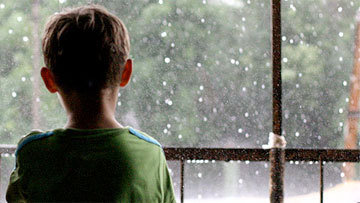MOSCOW, July 16 (RAPSI) - The State Duma sees no grounds to reconsider the Dima Yakovlev law that bans the adoption of Russian children by American couples. The ban will still be valid even if one of the parents permanently resident in the US is a Russian national, Olga Batalina, First Deputy Chairman of the State Duma Committee on Issues of Family, Women and Children, told RIA Novosti today.
Izvestia daily wrote this morning that the State Duma plans to rectify flaws in the Dima Yakovlev law during the fall session by giving Russian-American couples residing in the US the right to adopt Russian children.
“There is no objective need to reconsider the Dima Yakovlev law. The current legislation makes concessions for the couples of mixed nationalities if they live in Russia. We banned adoptions specifically for couples in the US and the ban will remain in place,” Batalina said.
She noted that the law approved earlier by the State Duma prohibits families in the US from adopting Russian children regardless of nationality on the grounds that the US does not provide sufficient security to adoptees.
Batalina added that as long as a mixed-nationality couple permanently residing in Russia can produce the supporting documents required, including evidence of permanent employment in Russia, they will be allowed to adopt a child.
The Dima Yakovlev law prohibiting US nationals from adopting Russian children was signed by President Vladimir Putin in late 2012 and came into force in January 2013.
21-month-old Dima Yakovlev died in July 2008 after his adoptive father Michael Harrison left him in a locked car in a parking lot for nine hours. Harrison was acquitted of involuntary manslaughter.
The Dima Yakovlev law was also adopted in response to the US Magnitsky Act, blacklisting alleged US rights abusers for entry to Russia and providing for the seizure of their assets and the suspension of their companies' operations in Russia.
On Dec. 6, 2012, the US Senate approved the Magnitsky Act, to severe criticism from the Russian State Duma, stipulating visa sanctions for Russians who are believed by the Senate to have been involved in human rights violations.



